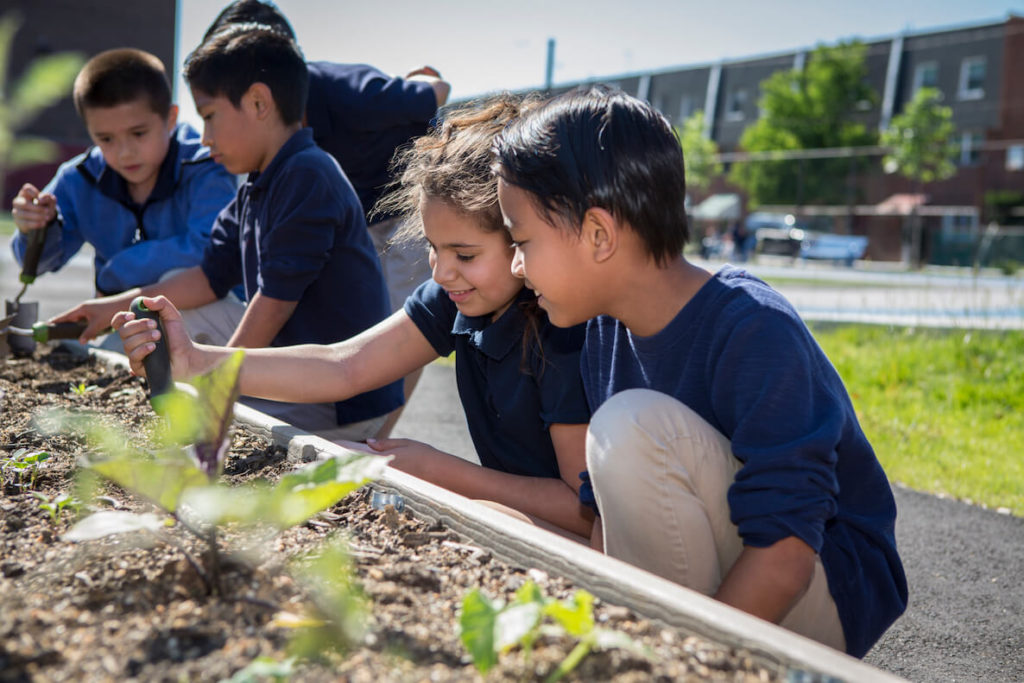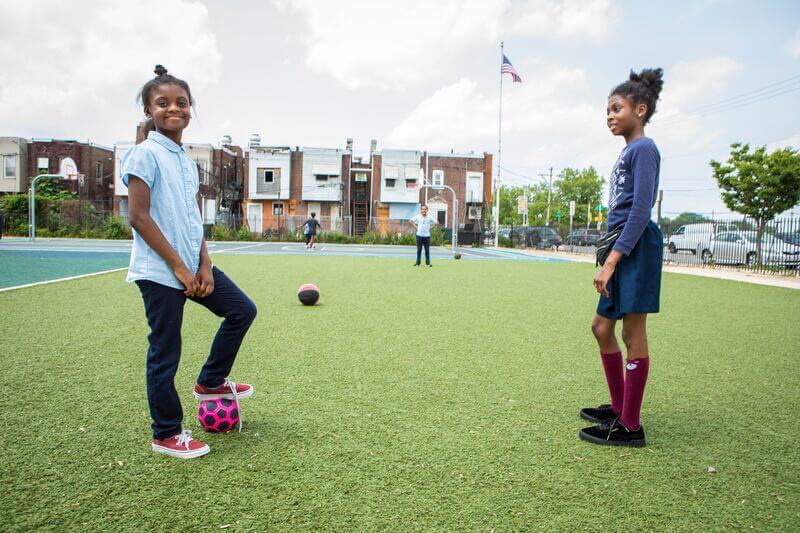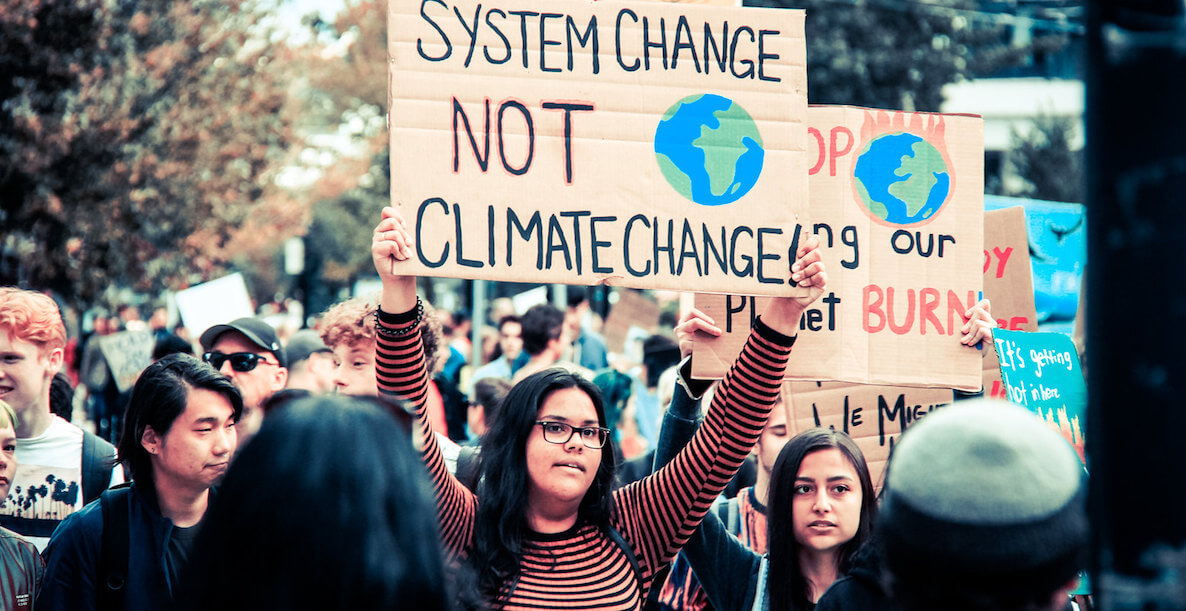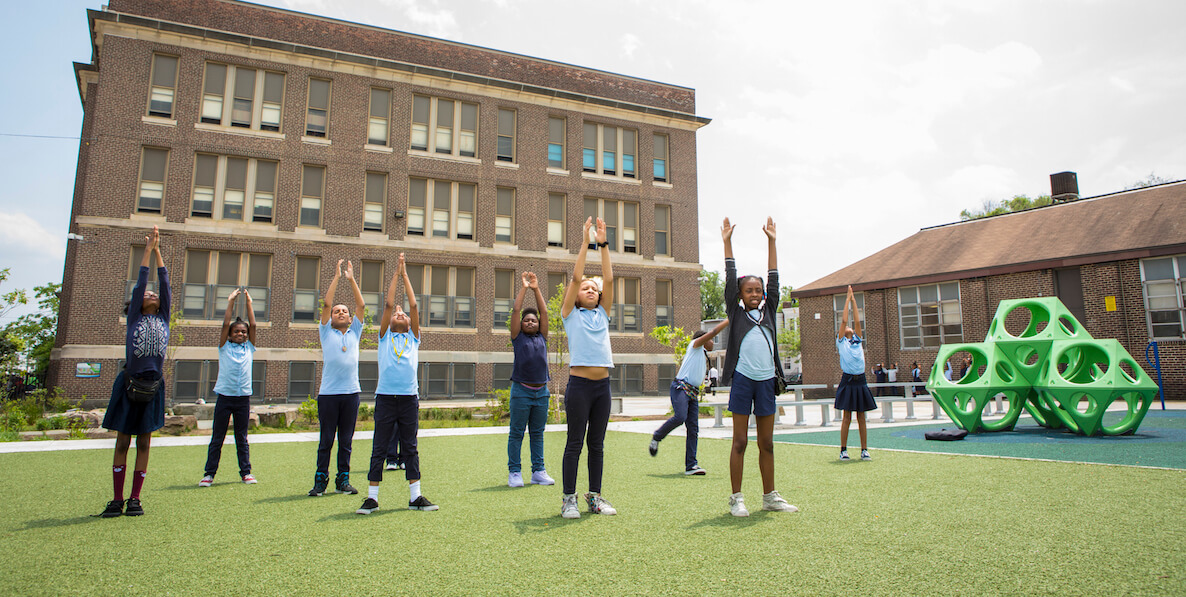School District of Philadelphia (SDP) students returned to in-person learning last week for the first time since March 2020—a milestone that was tempered by the grief experienced over the past 18 months.
While many students are excited to again have in-person interactions with their teachers and classmates—group projects, science labs, one-one-one tutoring and mentorship—psychologists and educators are anticipating a challenging transition for children who will be relearning a morning routine, adjusting to their social surroundings and academic demands, and coping with the ongoing disruptions and fears brought on by Covid-19.
In 2020, SDP leadership, conscious of students’ needs for additional supports during the pandemic, announced new resources for the more than 120,000 kids enrolled in its 326 schools. It launched a crisis hotline for students and their families called Philly Hopeline, added mental health providers at schools, and integrated social support programming like Healing Together. The additions follow several years of work integrating trauma-informed education into schools.
Studies suggest students are less anxious and more focused when they can see greenery from their classroom windows. That’s a significant benefit in the Covid-19 era, which is connected to higher rates of anxiety, depression and post-traumatic symptoms among our youth.
I’m encouraged by these efforts—a feeling underscored several weeks ago when Dr. Abigail Gray, SDP’s deputy chief of climate and culture reinforced that mental and emotional health remain a District priority. She told Fox29 last month that SDP will ensure each school is partnered with a mental health provider and increase the number of counselors available in schools, especially in neighborhoods most severely impacted by gun violence.
“Greeting people at the door, making sure that all students kind of have an adult they can connect with, building opportunities for play and fun interaction throughout the day,” said Dr. Gray, who added that a structured, inclusive recess as part of the school day was among SDP’s strategies.
 Prioritizing outdoor recess is a proven and important step in improving children’s mental health and academic performance. Experts agree that the physical and mental health benefits of time away from schoolwork to move, play and socialize are necessary for healthy emotional and academic development. But children need more than blacktop and a ball to get the most out of recess; the midday classroom break is most beneficial when taking place in cooling, green spaces.
Prioritizing outdoor recess is a proven and important step in improving children’s mental health and academic performance. Experts agree that the physical and mental health benefits of time away from schoolwork to move, play and socialize are necessary for healthy emotional and academic development. But children need more than blacktop and a ball to get the most out of recess; the midday classroom break is most beneficial when taking place in cooling, green spaces.
Asphalt schoolyards bake under the hot sun and flood during downpours. With little to no play equipment, boredom can lead to fighting and bullying, rather than active, creative play. Lacking gardens and outdoor classroom space, they fail to provide teachers with a place to engage students in hands-on lessons.

Yet when these same blacktops are transformed into a verdant playground that doubles as a neighborhood park outside of school hours, the schoolyard improves the health of students, their families and teachers, and the surrounding community.
Studies suggest students are less anxious and more focused when they can see greenery from their classroom windows. That’s a significant benefit in the Covid-19 era, which is connected to higher rates of anxiety, depression and post-traumatic symptoms among our youth.
MORE ON THE BENEFITS OF GREEN SPACE
Moreover, that same greenery helps cool neighborhoods, another win for students. A 2018 Harvard study indicates cumulative heat hurts cognitive development while other research shows a correlation between falling test scores and rising temperatures.
And the cooling benefits of a green schoolyard extend beyond campus. In Philadelphia, schoolyards renovated by the Trust for Public Land captured 17 million gallons of stormwater annually, helping to prevent flooding on local streets and building a more climate-resilient city. Having access to green space and spending time outdoors is also associated with reduced stress, less depression and anxiety, improved concentration, lower obesity rates, and reduced blood pressure, while also helping to relieve asthma symptoms since an abundant tree canopy counters air pollution.
In Philadelphia, schoolyards renovated by the Trust for Public Land captured 17 million gallons of stormwater annually, helping to prevent flooding on local streets and building a more climate resilient city.
Through my work with the Trust for Public Land, I have witnessed firsthand how green spaces help entire communities by providing a cooling refuge. Nationwide, we invest in revitalizing green spaces, schoolyards and resources to engage kids and get them to think about the issues, like climate change, happening in their own neighborhoods. Locally, our Heat Response PHL program engages community members in Fairhill, Grays Ferry and Southeast Philadelphia to create public art that sparks creative change and urgent conversation about the importance of cooling neighborhoods with more green space.

I applaud the measures being taken by the School District of Philadelphia to address the mental health of Philadelphia students and agree that implementing inclusive recess will benefit all children.
We need to support this impact by prioritizing the creation of cooling, green spaces for children to improve their physical and mental health, cognitive development, and academic achievement, as well as enhance quality of life and safety within their communities.
SDP has made important investments in green, outdoor spaces, and I urge more collaboration on this front from public, nonprofit and private partners. Together, we can reimagine schoolyards to create safer, more equitable communities for Philadelphia students.
Owen Franklin joined the Trust for Public Land in 2017 to serve as its first Pennsylvania State Director. He is the organizational lead for urban park and schoolyard redevelopment in areas including Philadelphia, Pittsburgh, and Camden, New Jersey, and for policy and planning support and land protection work across the state. Prior to joining the Trust for Public Land, he led an anti-poverty initiative for the City of Philadelphia.
The Citizen welcomes guest commentary from community members who stipulate to the best of their ability that it is fact-based and non-defamatory.

RELATED
Guest Commentary: Parents want school choice. Let’s help them get it.
Header photo: Students in the schoolyard at Patterson Elementary School in West Philadelphia | By Photographer Jenna Stamm, courtesy of The Trust for Public Land





